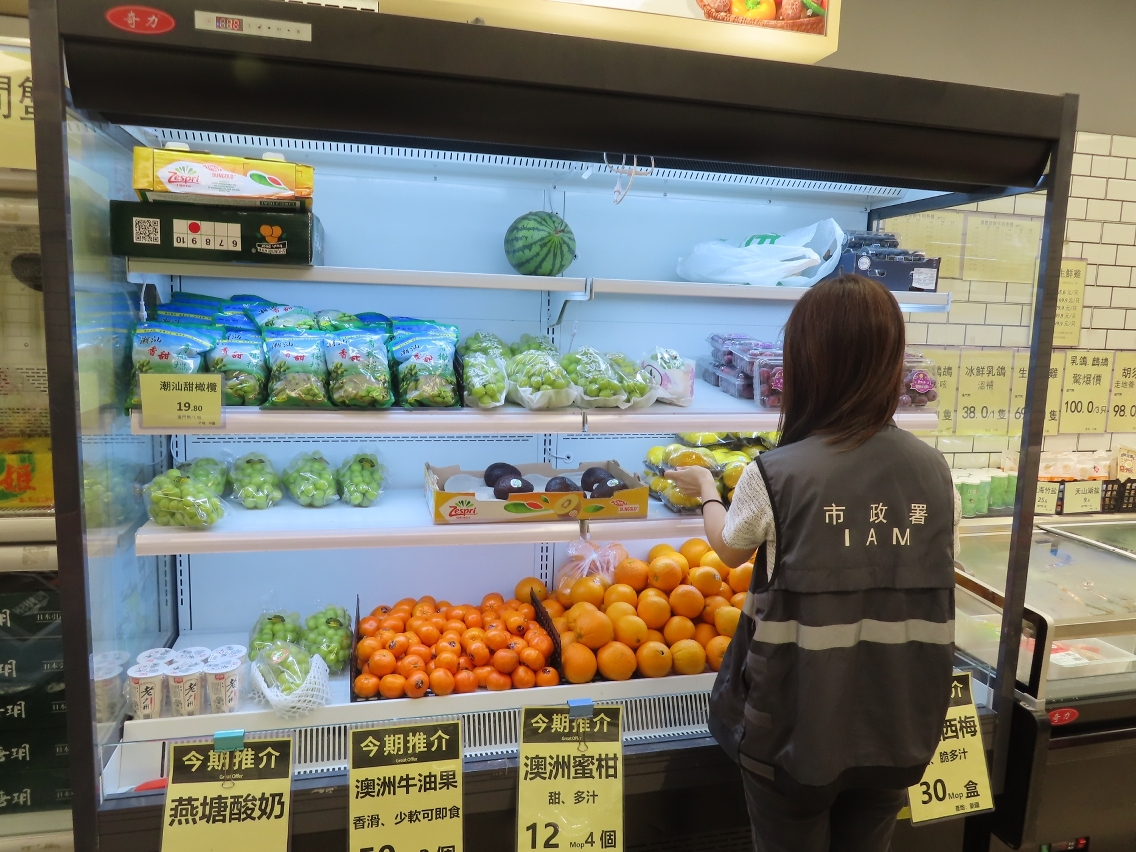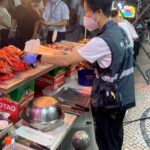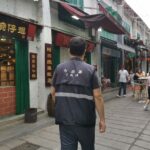 IAM steps up inspection of food and beverage establishments for adequate food safety management during festivals and holiday
IAM steps up inspection of food and beverage establishments for adequate food safety management during festivals and holiday
With the approach of the National Day Golden Week holiday, in order to safeguard food safety during the holiday peak season for the food and beverage industry, the Municipal Affairs Bureau (IAM) has stepped up a series of inspection and monitoring work to safeguard food safety and arranged inspection and promotion in food establishments, souvenir shops and takeaway shops in popular areas in Macao during the holiday to ensure food safety. IAM urges the food industry not to neglect food safety and environment hygiene due to increase in customer flow, in order to jointly safeguard the food safety in Macao.
Focused screening of hidden food safety risks of restaurants and food establishments
The festivals and holiday are the high season for food and beverage consumption. As restaurants and food establishments receive large amounts of customers within a short time, improper handling of food and other problems are prone to appear due to negligence, for example, preparing excessive food ingredients too early in advance and lack of proper storage. Therefore, IAM continuously carries out inspections of restaurants, food establishments, takeaway shops and other establishments of production and operation of food in various districts in Macao. Over 7,000 inspections have been made between January this year and now. Focused inspection and promotion work were previously carried out especially for the food shops, retail shops, establishments offering tour group meals, ready-to-eat food hawkers and stalls at night markets, ensuring fulfillment of food safety management responsibilities by the businesses.
IAM reminds members of the food industry to strictly comply with the “Food Safety Law” and various food safety and hygiene guidelines, maintain environmental hygiene and personal hygiene of staff, perform good food safety operations during food procurement, preparation, display and sale, and not to neglect food safety and environmental hygiene due to increase in customer flow. To reduce the risks of rotten or contaminated food, they should also manage the inventory and prepare the goods according to the actual business situation and avoid preparing excessive food ingredients and semi-finished food too early in advance.
Pay attention to food safety to prevent gastrointestinal discomfort
Up to August this year, IAM has collected more than 500 random samples for inspection through the “mystery shopper” method. After re-testing of certain samples, the follow-up results were all satisfactory. As it is expected that the demand for food and beverage consumption will increase during the golden week of the National Day, IAM specially reminds the public to pay attention to whether the food products are kept in the suitable temperature range, strictly follow the principles such as separation of raw and cooked food, and thorough cooking of food no matter whether they cook at home, order takeaways or dine out. Young children, the elderly, pregnant women, people with weakened immune system and other high-risk individuals should avoid eating cold dishes, sashimi, salad and other high-risk food.
IAM has also recently issued the “Hygiene Guidelines on Production and Supply of Ready-to-eat Food”, focusing on reminding the industry of the hygiene and safety matters that should be paid attention to when preparing and supplying ready-to-eat food. A series of food safety guidelines and information can also be found on the Food Safety Information Website of IAM at www.foodsafety.gov.mo. At the same time, IAM will further improve the food safety standards of the industry by organising training courses and talks.




